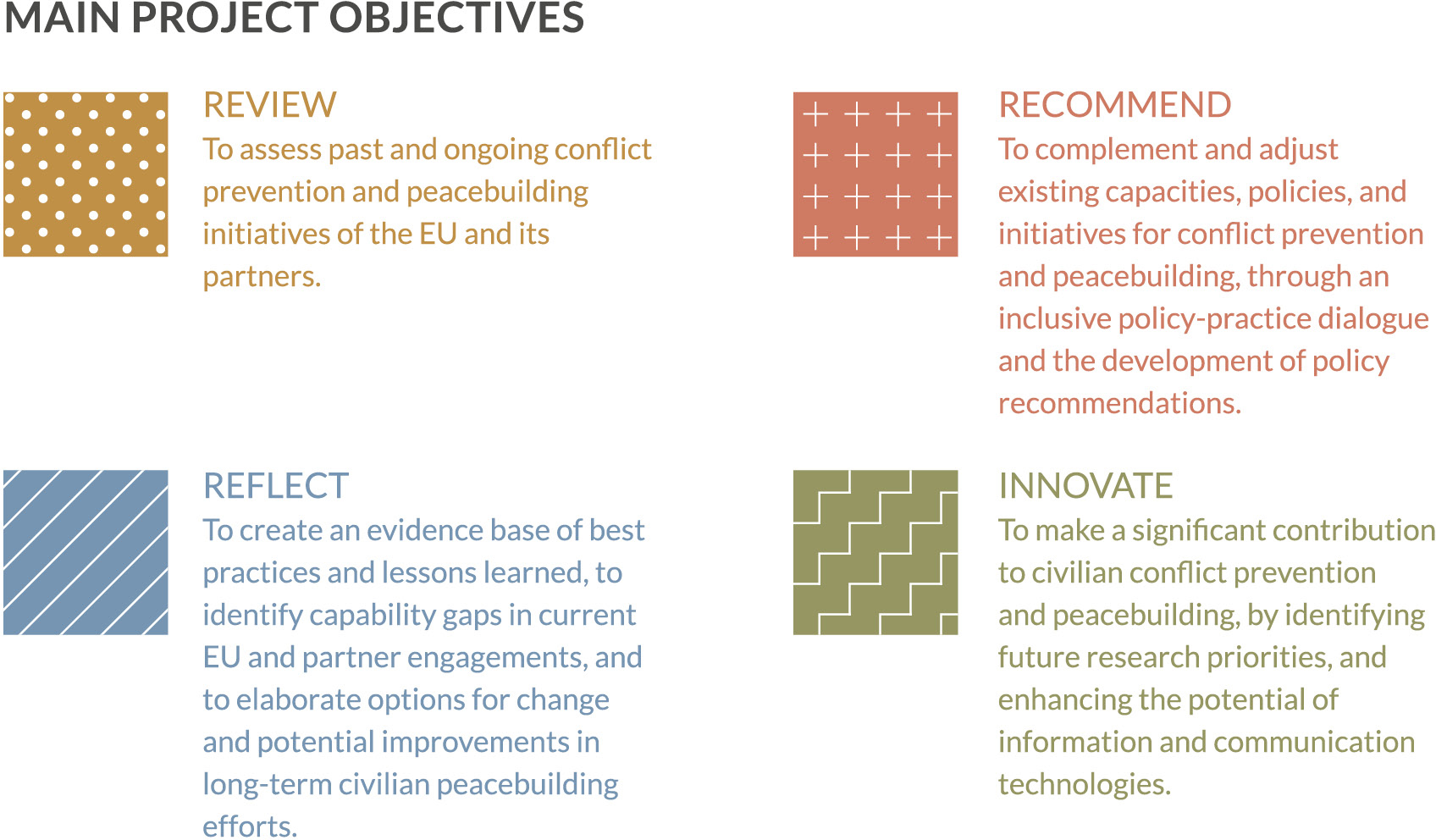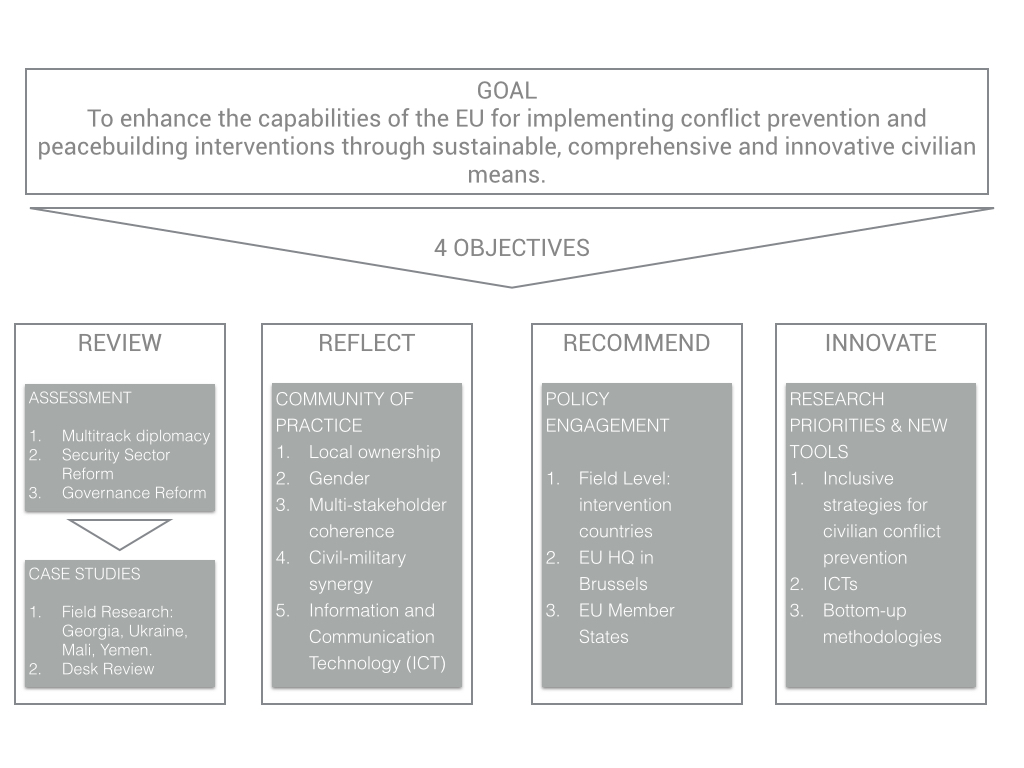Project Objectives
The overall objective of the project is to enhance the capabilities of the EU for implementing conflict prevention and peacebuilding interventions through sustainable, comprehensive and innovative civilian means.

Key topics and principles are:
- The capability assessment will be based on three categories of existing EU interventions, namely multi-track diplomacy, security sector reform, and governance reform.
- The catalogue of best practices will focus on a number of principles, processes and tools that can operationally support context-specific whole of society peacebuilding interventions. This will be addressed through cross-cutting themes: local ownership, gender, multi-stakeholder coherence, civil-military synergies and Information and Communication technologies (ICT).
The expected results of these objectives will be:
- An assessment of past and potential civilian conflict prevention and peacebuilding capabilities of the EU, validated and supported by stakeholder engagement and a community of practice.
The expected impacts of this are:
- enhancement of the EU capabilities by providing a comprehensive understanding of its interventions and new insights on the EU's performance specifically in multi-track diplomacy, security sector reform and governance reform.
- contribution to addressing context-specific challenges that the EU faces in the case study countries (Georgia, Mali, Ukraine, Yemen) by informing the research agenda of local institutions and relationship building between local civil society, academia and state actors.
- contribution to an increased accountability of EU interventions towards local populations through the engagement of end users and beneficiaries.
- enhancement of the EU's potential for delivering sustainable results, providing an overview of potential capabilities and technologies for civilian conflict prevention that the EU can peruse, as well as an understanding of their strategic and social implications.
- bridging the gap between policy and practice through the establishment of the Community of Practice, by connecting practitioners and policy makers.
- A tailored set of recommendations on what policy priorities and information and communication technologies are needed for effective civilian conflict prevention functioning in synergy with military efforts, enhanced by policy engagement and an international dissemination strategy.
The expected impacts of this are:
- contribution to improving coherence of EU civilian actions, between multiple actors, across a range of programmes and between civilian and military interventions, facilitated by cross-actor engagement and opinion and knowledge sharing in the community of practice.
- contribution to informing institutional and policy development of the EU and Member States in the area of the European Common Security and Defence Policy (CSDP) and refinements to CFSP Guidelines related to conflict.
- raising awareness and actor mobilisation around next generation conflict challenges and potential solutions in key categories of EU intervention, such as mediation, security sector reform and governance reforms, and also contributing to the public accountability of the EU to its citizens.
- providing benefit to scientific research from improved state of the art knowledge about the civilian means for conflict prevention and peacebuilding, emphasising their practical applicability on the ground and their effects.
- advancing improved research methods, based on the innovative methodological approach to conflict and peacebuilding research, while challenging the premises and presuppositions of traditional methodological frameworks used for conflict/policy analysis.
- innovation based on conceptual and empirical research into the use of ICT for conflict prevention and conflict response, and use of newly identified uses of ICT tools for mediation and peacebuilding, matched by practical recommendations for how to adapt tools to purpose.

